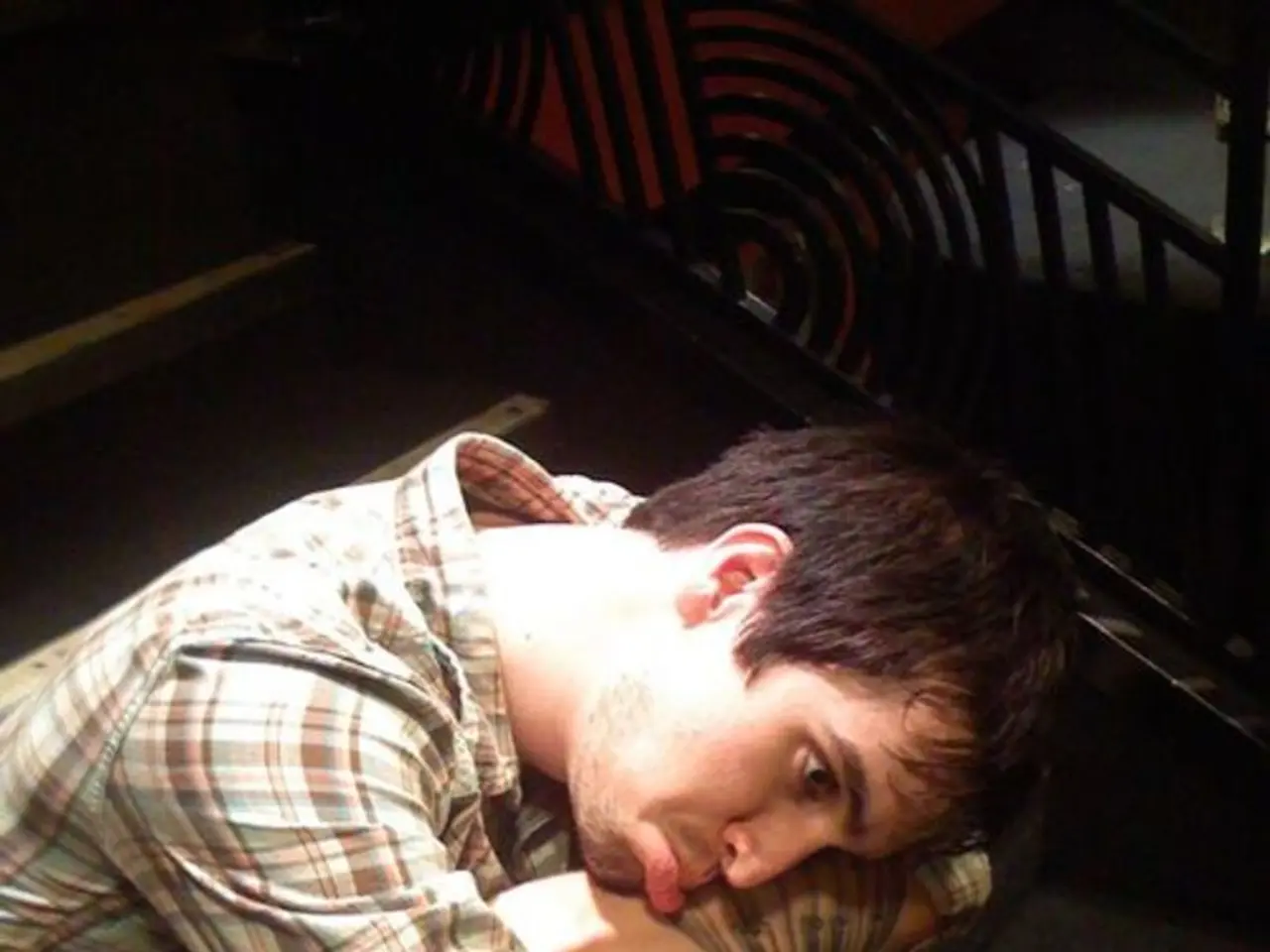Exploring the Intricate Connection between Erectile Dysfunction and Depression: Unraveling Causes, Consequences, and Remedies
Managing the complex and interrelated issues of erectile dysfunction (ED) and depression requires a multifaceted approach, encompassing both physical and psychological treatments. Here's a look at the key strategies and treatment options for addressing these conditions.
**Treatment Options for Erectile Dysfunction**
1. **Lifestyle Changes**: Reducing alcohol consumption, quitting smoking, and increasing physical activity can help alleviate ED symptoms. 2. **Psychotherapy**: Therapy, such as cognitive-behavioral therapy (CBT), can help manage stress and anxiety, common underlying causes of ED. 3. **Medications**: Prescription drugs like phosphodiesterase inhibitors (e.g., sildenafil, tadalafil) can improve blood flow to the penis. 4. **Mechanical Solutions**: Vacuum devices and penile implants are mechanical solutions for ED when medications are ineffective. 5. **Testosterone Therapy**: For cases where low testosterone is a contributing factor.
**Treatment Options for Depression**
1. **Antidepressant Medications**: Selective serotonin reuptake inhibitors (SSRIs), serotonin and norepinephrine reuptake inhibitors (SNRIs), and atypical antidepressants can be effective. 2. **Therapies**: Cognitive-behavioral therapy (CBT), interpersonal therapy (IPT), and psychodynamic therapy can help manage depressive symptoms. 3. **Neurostimulation Therapies**: Electroconvulsive therapy (ECT) and repetitive transcranial magnetic stimulation (rTMS) are options for treatment-resistant depression.
**Managing the Interconnection**
- **Combination Treatment**: Addressing both conditions simultaneously can be beneficial. For example, treating depression with antidepressants might also help alleviate ED symptoms. - **Monitoring Medications**: Some antidepressants can cause or worsen ED, so medication choice and monitoring are crucial. - **Therapy for Sexual Issues**: Including therapy focused on sexual health can help address psychological aspects of ED. - **Support Groups**: Joining support groups can provide emotional support and understanding from others experiencing similar challenges.
The interconnectedness of ED and depression stems from both psychological and physiological factors. By addressing both conditions simultaneously and using a comprehensive treatment plan, individuals can better manage the interconnected challenges of ED and depression.
It's essential to seek professional help for both ED and depression, as both conditions are treatable, and healthcare providers can offer personalized treatment plans. By taking the first step and seeking help, individuals can embark on a journey towards improved mental and sexual health. Remember, recovery is possible, and seeking help is a sign of strength, not weakness.
- Adequate sleep, a crucial aspect of mental health, can be promoted through various health-and-wellness techniques, such as sleep hygiene practices and stress management exercises.
- The neurotransmitter dopamine, associated with feelings of pleasure and reward in the brain, can be affected by the lack of sleep and high levels of stress, often seen in individuals with mental health issues.
- Incorporating fitness-and-exercise routines, known for their stress-reducing properties, can contribute to better mental health and sleep quality.
- Proper nutrition, which includes a balanced diet rich in fruits, vegetables, and lean proteins, can support mental health by maintaining healthy brain function and overall health.
- Nutrition also plays a role in sexual health, as certain foods can boost libido and support reproductive health.
- Various therapies and treatments, including psychotherapies (such as CBT, IPT, and psychodynamic therapy) and neurostimulation therapies (like ECT and rTMS), can help manage mental health conditions, stress, and anxiety.
- Further exploration and advancements in the science of mental health, sexual health, and therapies and treatments can lead to breakthroughs in dealing with complex issues like ED and depression.




